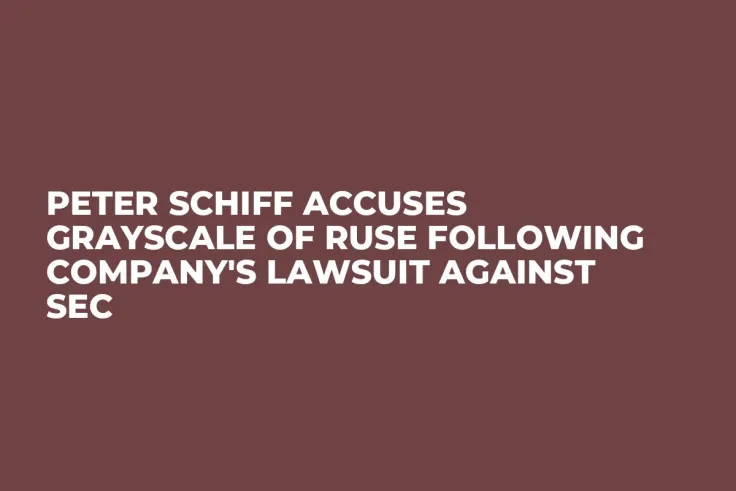
Yesterday's news that one of the world's largest asset managers, Grayscale Investments, is taking legal action against the U.S. Securities and Exchange Commission sparked mixed reactions. One of the most interesting was cryptocurrency critic Peter Schiff's verbal attack on Barry Silbert, founder and head of Digital Currency Group, parent company of Grayscale Investments.
Silbert, commenting on the press release on the launch of the lawsuit, urged the SEC to approve the long-awaited spot Bitcoin ETF, saying that GBTC, the Bitcoin trust from Grayscale, is already used by 850,000 Americans. In response, Schiff said that it was just a hoax and that if Silbert cared about the trust holders, he would not wait for SEC approval but would sell Bitcoin collateral from under GBTC and perform a share buyback to reduce the huge discount of GBTC to BTC.
This is just a ruse. If you really cared about shareholders you wouldn't wait for the SEC to approve an ETF. You'd sell some #Bitcoin held by $GBTC and buy back shares until the 35% discount to NAV closed. But you refuse to do that as it would reduce your excessive 2% annual fee.
— Peter Schiff (@PeterSchiff) October 13, 2022
In the expert's view, Grayscale is not taking this step because it will reduce the number of assets under management and, therefore, the amount of fees received from this activity. Meanwhile, the gap between GBTC and BTC is already almost 35%.
Why exactly does spot Bitcoin ETF matter?
It is difficult to understand why the SEC is so adamant about spot cryptocurrency ETF but approves futures-based vehicles. All attempts by Grayscale to convert its BTC trust into an ETF turned out to be rejected, and the same happened with the plans of other companies like WisdomTree.
At the same time, market participants expect a mass launch of spot ETFs because they hope it will greatly affect the BTC price due to the fact that funds will start to buy BTC itself, which has a limited supply, but not paper derivatives for BTC.

 Vladislav Sopov
Vladislav Sopov Dan Burgin
Dan Burgin